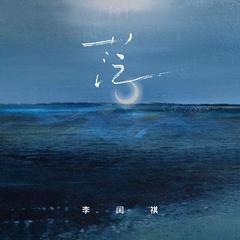Cypress Hill
Cypress hill是倡导大麻可以激发创作灵感的新rap乐队中的重要一员,这支多种族组成的乐队来自洛杉矶的拉丁移民聚居区,同时也是大麻合法化运动的坚定支持者,在他们不少歌如"I Wanna Get High", "Legalize It" 和 "Insane In The Brain"等作品里面阐明他们的立场,即在文化意义上大麻可以作为酒精的替代品。但乐队取得巨大成功并不是因为这个,而是得益于他们流畅的融合了R&B的曲风,而其含糊不清的演唱和偶尔涉及枪支的内容为他们庸懒的节奏增色不少。乐队的原始成员包括了DJ Muggs (原名b. Lawrence Muggerud, 生于1968年1月28日,纽约皇后区,意大利移民后裔),歌手B-Real (原名b. Louis Freese, 生于1970年6月2日, 洛杉矶人,古巴/墨西哥移民后裔)以及Sen Dog (原名b. Senen Reyes,生于1965年11月20日,古巴移民)。Sen Dog在14岁的时候从自己的故乡古巴移民到洛杉矶。他和他的弟弟Mellow Man Ace组成了乐队的雏形,当时名字叫DVX,并且宣称自己的风格是独创一家的西班牙俚语风格,乐队还包括了前7A3乐队成员DJ Muggs和 B-Real。当Mellow Man Ace离开乐队开始单飞,其余成员决定把乐队名改为当地街区的名字。乐队1991年的第一张专辑一出版便在美国引起广泛关注,并且最后达到白金销量,尽管如此这张专辑在英国只能买到引进版。通过名为Longstanding B-boys的免费巡演和为 Naughty By Nature做开场表演,Cypress Hill掀起了RAP乐的新浪潮。 与宣扬激进革命立场的Public Enemy 和NWA 不同,Cypress Hill倡导的是虚无和逃避,而他们的音乐也非常具有诱惑力,特别是对于那些重要的白种另类摇滚的听众。乐队第二张专辑并没有追求商业上的更大成就,而是描绘了自己居住城市的一些黑暗面,例如Rodney King的袭击事件。专辑Black Sunday在1993年出版的第一周就登上了美国R&B 及 Pop榜的第一位,其中包括了Top20热门单曲Insane In The Brain。涉及鼓吹枪支的单曲Cock The Hammer也出现在史瓦幸格的动作片Last Action Hero的原声唱片里。而当乐队名字出现在另外一张原声大碟Mad Dog And Glory中的时候,乐队那以暴力歌词而得来的名声更加显要了,他们解释暴力的歌词并不是暗示暴力倾向而是描述暴力产生原因以及进行的过程,而他们为这部电影贡献的音乐出现在一个由于过量注射毒品而导致死亡的场景里。乐队这些年来还和Pearl Jam合作了Real Thing,和Sonic Youth合作了I Love You Mary Jane等为电影Judgement Night谱写的歌曲。乐队由于在1993年帮助House Of Pain乐队而在英国打开市场,从此他们取得了一系列top 20热门单曲。后来的一些乐队诸如Ice Cube 和 the Beastie Boys都曾经得益于DJ Muggs的制作能力。1994年Eric Bobo加入乐队作为打击乐手,他们的第三张专辑,黑暗三部曲的第三章Temples Of Boom出版以后,乐队在大学里的歌迷逐渐流失,但却重新获得hip-hop乐界的认可。这张专辑也取得商业上的成功,在美国刚出版就获得排行榜第三。1996年Sen Dog离队,自己组成了一支punk/metal乐队SX-10,他的位置被DJ Scandalous取代,DJ Scandalous在此之前就为乐队工作过。在乐队成员开始把重心转移到个人发展之前,他们出版了一张有9首歌的重新混音版的EP。Muggs出版了自己的Muggs Presents ... The Soul Assassins Chapter 1,B-Real则和Psycho Realm乐队合作。1998年Cypress Hill回归乐坛,Sen Dog也回来帮助制作,尽管这张专辑Cypress Hill IV没有登上美国排行榜前10位,但是荏苒被认为是一次漂亮的出击。而双专辑Skull & Bones里的歌曲则是传统的hip-hop风格和融合风格的折衷产品 Cypress Hill were notable for being the first Latino hip-hop superstars, but they became notorious for their endorsement of marijuana, which actually isnt a trivial thing. Not only did the group campaign for its legalization, but their slow, rolling bass-and-drum loops pioneered a new, stoned funk that became extraordinary influential in 90s hip-hop — it could be heard in everything from Dr. Dres G-funk to the chilly layers of English trip-hop. DJ Muggs crafted the sound, and B Real, with his pinched, nasal voice, was responsible for the rhetoric that made them famous. The propot position became a little ridiculous over time, but there was no denying that the actual music had a strange, eerie power, particularly on the bands first two albums. Although B Real remained an effective lyricist and Muggs musical skills did not diminish, the groups third album, Temples of Boom, was perceived by many critics as self-parodic, and the group appeared to disintegrate shortly afterward, though Muggs and B Real regrouped toward the end of the 90s to issue more material.DVX, the original incarnation of Cypress Hill, formed in 1986 when Cuban-born brothers Sen Dog (born Senen Reyes, November 20, 1965) and Mellow Man Ace hooked up with fellow Los Angeles residents Muggs (born Lawrence Muggerud, January 28, 1968) and B Real (born Louis Freese, June 2, 1970). The group began pioneering a fusion of Latin and hip-hop slang, developing their own style by the time Mellow Man Ace left the group in 1988. Renaming themselves Cypress Hill after a local street, the group continued to perform around L.A., eventually signing with Ruffhouse/Columbia in 1991.With its stoned beats, B Reals exaggerated nasal whine, and cartoonish violence, the groups eponymous debut became a sensation in early 1992, several months after its initial release. The singles How I Could Just Kill a Man and The Phuncky Feel One became underground hits, and the groups public promarijuana stance earned them many fans among the alternative rock community. Cypress Hill followed the album with Black Sunday in the summer of 1993, and while it sounded remarkably similar to the debut, it nevertheless became a hit, entering the album charts at number one and spawning the crossover hit Insane in the Brain. With Black Sunday, Cypress Hills audience became predominantly white, collegiate suburbanites, which caused them to lose some support in the hip-hop community. The group didnt help matters much in 1995, when they added a new member, drummer Bobo, and toured with the fifth Lollapalooza prior to the release of their third album, Temples of Boom. A darker, gloomier affair than their first two records, Temples of Boom was greeted with mixed reviews upon its fall 1995 release, and while it initially sold well, it failed to generate a genuine hit single. However, it did perform better on the R&B charts than it did on the pop charts.Instead of capitalizing on their regained hip-hop credibility, Cypress Hill slowly fell apart. Sen Dog left in early 1996 and Muggs spent most of the year working on his solo album. Muggs Presents the Soul Assassins was released to overwhelmingly positive reviews in early 1997, leaving Cypress Hills future in much doubt until the release of IV in 1998. Sen Dog had come back for the record. He had left because he felt he did not get enough mic time, but after a few years with a rock band he was more than happy to return. Two years later, the group released the double-disc set Skull & Bones, which featured a disc of hip-hop and a disc of their more rock-inspired material. Appropriately, the album also included rock and rap versions of the single Superstar, bringing Cypress Hills quest for credibility and crossover hits full circle. The ensuing videos for both versions featured many famous rap and rock musicians talking about their profession, and the song was a smash on MTV because of it. In the winter of 2001, the group came back with Stoned Raiders, another album to heavily incorporate rock music. Three years later, the band issued Till Death Do Us Part, which incorporated several styles of Jamaican music.


 How I Could Just Kill a Man(Explicit) - Cypress Hill
How I Could Just Kill a Man(Explicit) - Cypress Hill























